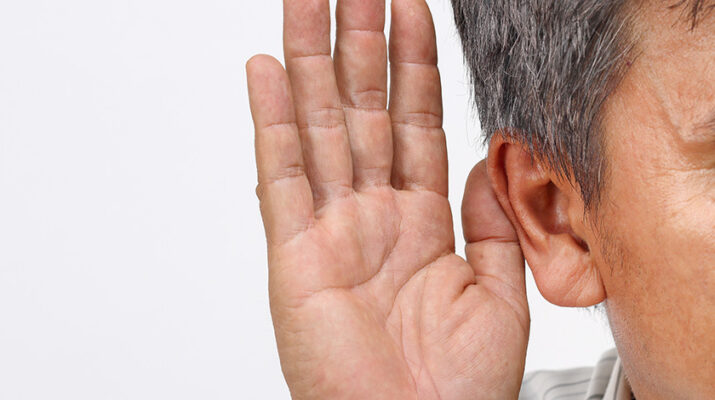By Deborah Jeanne Sergeant
Every baby born in a hospital receives a newborn hearing exam. Unfortunately, the next time that the person’s hearing is considered is typically once a significant degree of hearing is lost.
Signs of hearing loss vary by age.
In infants, tugging on the ears, irritability and general discontent can be symptoms of an ear-nose-throat related illness that could cause damage to hearing unless address promptly.
“Parents may notice language delay for preschool-aged children,” said Karen Martin McMahon, audiologist and owner of Hearing Health Center in Buffalo. “Teachers would notice inattentiveness at PreK.”
School-aged children may seem to not listen in school, keep the TV or other devices loud or seem confused when given directions that are age-appropriate in complexity.
Parents would notice the child might be turning the television higher than what they feel would be normally appropriate.
“At home, there may be issues with conversation,” McMahon said. “Parents may receive teacher complaints about poor grades or inattentiveness.”
For adults, it’s typically other adults who signal a hearing problem is present, as they must repeat themselves or deal with the excessive radio or TV volume. Some less obvious signs he included are not hearing the crickets at night or the birds during the day. Dizziness or ringing in the ears (tinnitus) can also indicate a hearing problem.
“The clarity of conversation is usually an issue,” McMahon said. “There’s difficulty in hearing in the presence of background noise. People feel like others are mumbling or conversation is muffled. Ringing in the ears — tinnitus — can be a sign of hearing loss. The same things apply for older adults.”
Losing hearing can cause different and significant problems across the lifespan. For children, diminished hearing can interfere with language acquisition, learning and developing social understanding.
“Some hearing loss is reversible if you catch it soon enough,” said Salvatore Gruttadauria, audiologist and owner of Diversified Hearing & Balance Centers in Buffalo. “Some viral conditions affect the ear and cause sudden hearing loss. Many wait because they think it’s wax in the ear. There’s only a short window of time to have that done. Audiologists aren’t medical doctors, but the hearing test is a window into the health of the ear. A hearing test isn’t just to see whether you can hear, but is your hearing system healthy? Does it need any medical intervention?”
For school-aged children who have lifelong hearing loss, early intervention can help them stay abreast with their schoolwork. Neglecting hearing issues can cause them to fall behind.
Working adults should also promptly address hearing issues. Otherwise, their work and income may suffer.
“Studies do indicate that people with an untreated hearing loss actually have a decreased income over people who don’t have a hearing loss,” Gruttadauria said. “If they say ‘What?’ a lot are thought of as not being as smart or as capable. That’s not necessarily true. It can affect their work performance and their overall income.”
For people working in environments such as construction or agriculture, not hearing well can compromise their safety because they don’t realize what they’re missing. It can also result in loss of work for some occupations such as professional truck drivers.
For older adults, letting hearing loss go too long can increase the risk of cognitive impairment.
“A study shows that untreated hearing loss is the single most modifiable factor to decrease your risk of dementia,” Gruttadauria said. “You can do something about it: provide hearing aids to mitigate the risk. As we get older, safety can be a concern, like hearing the smoke alarm. Or hearing when people call or come to the door. If people can’t hear well on the telephone, that can cut people off socially.”
Waiting can also make acclimating to hearing aids more challenging as the brain has to relearn how to process sounds again. Untreated hearing loss can also increase the risk for falls.
Unfortunately, it can take many people a long time to discover and treat hearing loss — the average time is seven years. Gruttadauria said that many people feel shocked to discover that they have a hearing loss. As with many areas of health, the sooner a problem is identified and addressed, the better.

